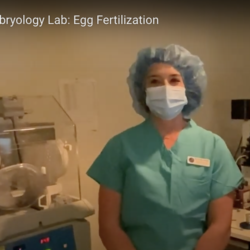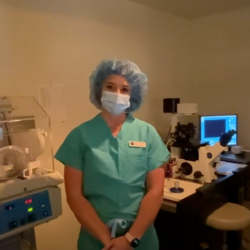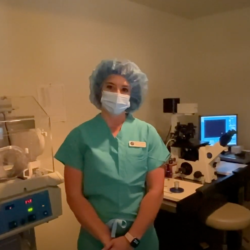
Your embryo transfer is a hopeful moment on the path to parenthood. At this stage of the IVF process, you’re one step closer to achieving your dream of having a baby, which is why it’s essential to know what to avoid after an embryo transfer.
While following these guidelines does not guarantee success, they allow you to create a nurturing environment for your body and the assurance that you’ve done all that is in your control to do. The Fertility Institute is here to support you every step of the way, offering expert guidance and compassionate care during this transformative time.
1. Choose Gentle Movements Over Intense Exercise
After the embryo transfer procedure, your body needs gentle care. You might be tempted to jump back into your busy routine, but strenuous workouts like heavy lifting, HIIT, or long-distance running could potentially interfere with your body’s recovery and the optimal environment needed for the embryo to implant successfully.
Instead, focus on light activities—like a calm walk or gentle stretching—that help maintain circulation without overstressing your body. Remember, while staying active is important, your recovery period calls for a gentler pace.
2. Manage Stress and Emotional Well-being
Fertility treatments can feel overwhelming and all-consuming, especially when balancing professional responsibilities and personal hopes. One of the key things to avoid after an embryo transfer is exposure to high-stress situations. Chronic stress may impact your body’s natural balance, potentially affecting the delicate process of implantation.
Instead, consider incorporating calming practices into your daily routine, such as meditation, deep breathing exercises, or listening to soothing music. By managing your stress and emotional well-being, you can feel more in control during your journey.
3. Avoid Environmental Toxins
Another important aspect of post-transfer care is minimizing exposure to environmental toxins, including areas with high pollution, exposure to cigarette smoke, and even harsh household chemicals. These factors can introduce unnecessary stress to your body. Choose organic or natural cleaning products and create a safe, toxin-free environment at home.
4. Nutrition and Hydration
Your diet plays a crucial role in how your body prepares for a potential pregnancy. One of the things to avoid after an embryo transfer is a diet high in processed foods, caffeine, and alcohol. That said, a cookie or small treat to ease stress or soothe your nerves is perfectly okay and won’t negatively affect the outcome. Instead, focus on a balanced, nutrient-rich diet filled with fresh fruits, vegetables, lean proteins, and whole grains. Hydration is equally important—drinking plenty of water supports general health and helps maintain the conditions your body needs for a gentle recovery.
Personalized Care and Ongoing Support From The Fertility Institute
At The Fertility Institute, we understand that every decision, big or small, is a step toward fulfilling your dream of building a family. Although these guidelines are general recommendations, they aren’t one-size-fits-all solutions. We’re here to listen, provide expert advice, and develop personalized treatment plans considering your needs and busy lifestyle.
Regular follow-up appointments with your fertility specialist allow you to ask questions, express concerns, and adjust your post-transfer care based on what works best for you. Our experienced team is committed to walking this path with you, offering support through every step.
Talk to Your Fertility Specialists About What to Expect After Your Embryo Transfer
By understanding what to avoid after an embryo transfer, you’re taking an active role in your fertility journey. While these steps do not guarantee success, they can contribute to a healthier, more balanced environment for your hoped-for result—the embryo to implant.
If you have any concerns or need personalized advice, please don’t hesitate to contact your care team at The Fertility Institute. We’re here to support you and help you find effective treatments as you work to build your family.



